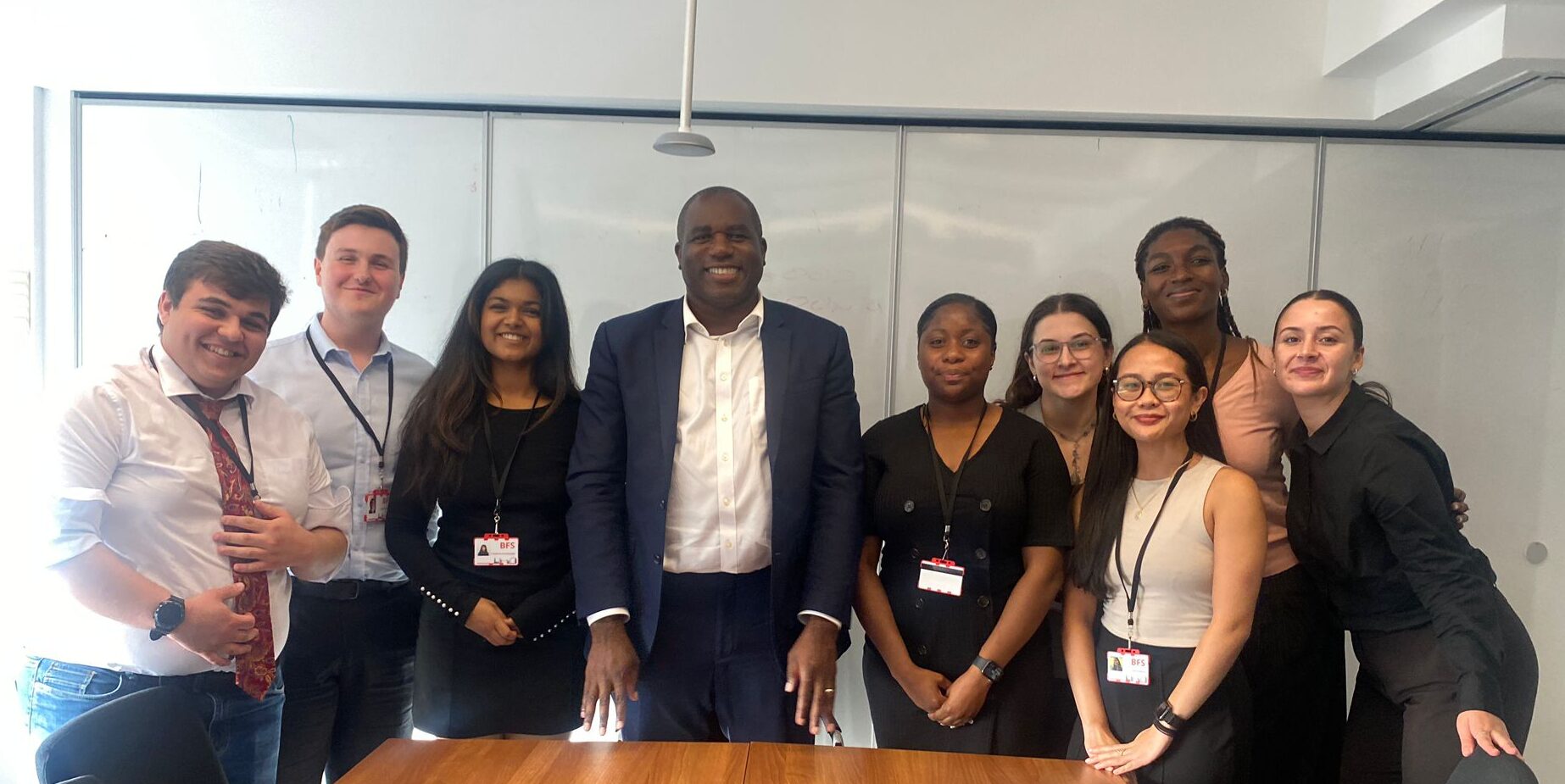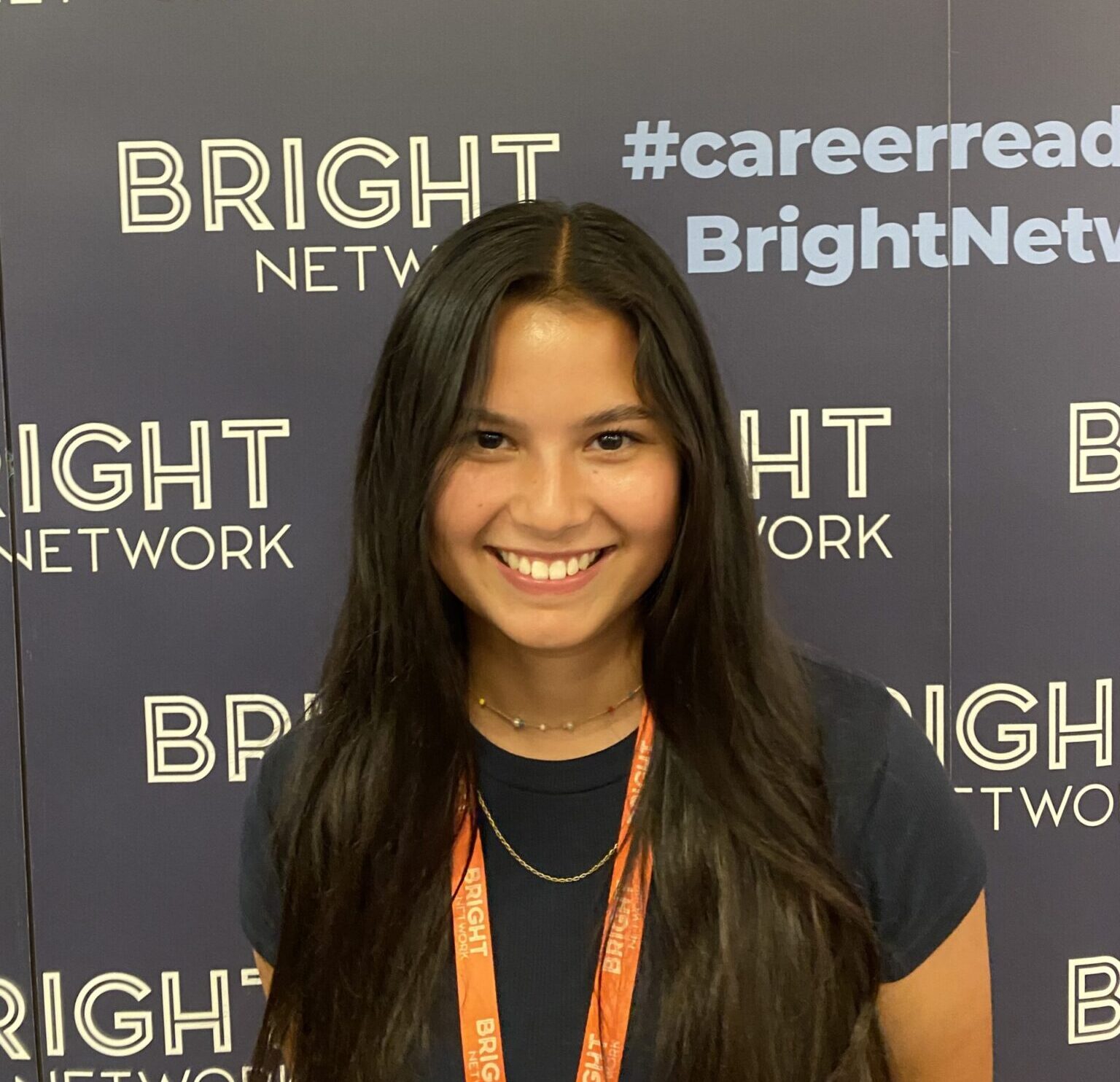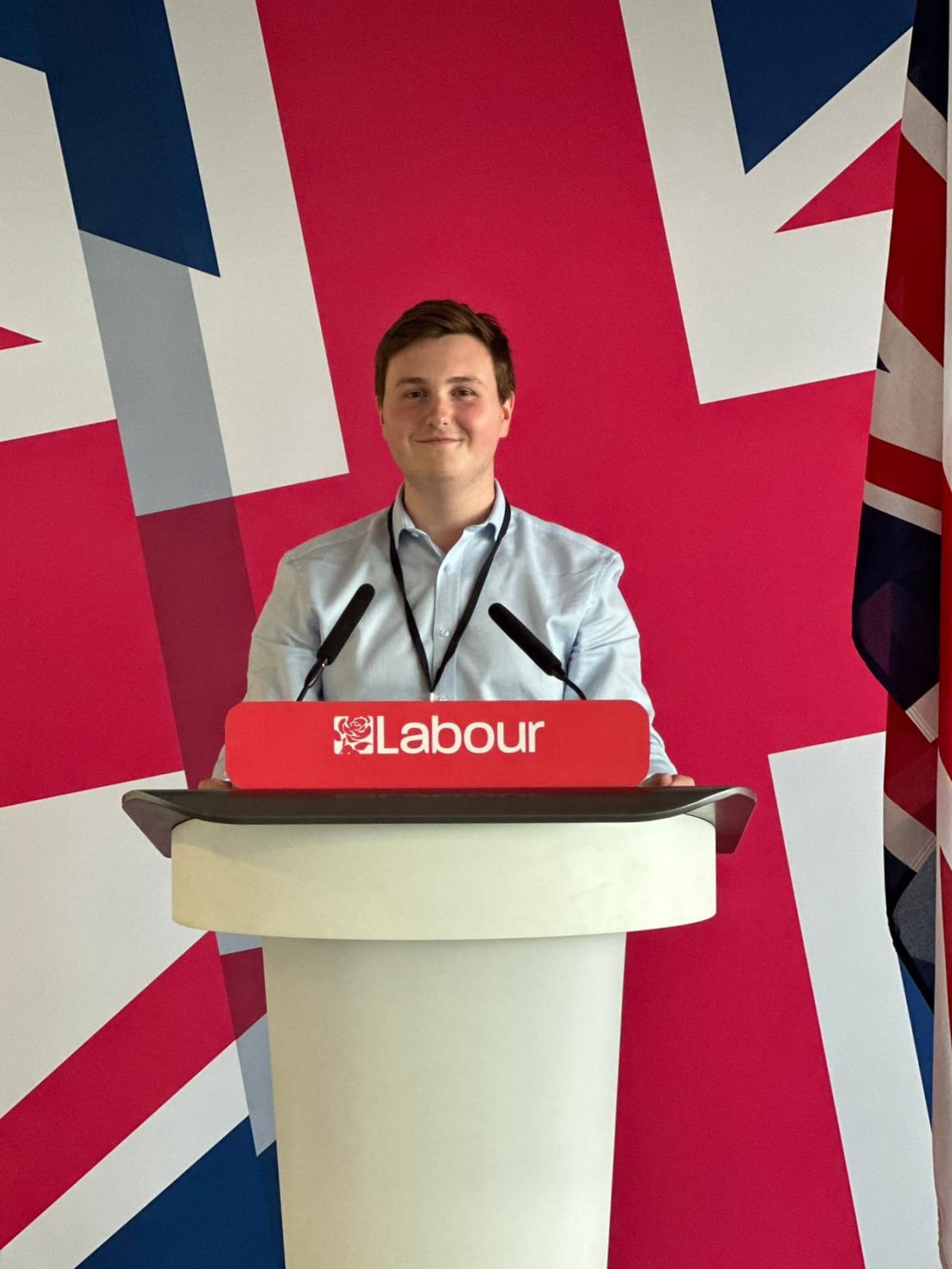“Many people from underrepresented backgrounds feel as though we do not belong in political spaces. Patchwork tries to teach young people that you have just as much right as anyone else, and that source of discomfort can be transformed into a source of unique strength.”
Janira works in the Education Sector, leading programmes to promote equity and student success. She has taken on several leadership roles to ensure that young people can thrive in their chosen career paths. She is an ambassador for Tech Talent Charter, a non-profit bringing together industries and organisations to drive greater inclusion and diversity in technology roles.
What are you up to at the moment?
I work in the Higher Education Sector, heading up the Student Careers Engagement team at KCL. I oversee a portfolio of student enhancement opportunities. Outside of work, I am an active volunteer for different organisations and charities that seek to tackle structural inequalities in a number of sectors, aiming to improve diversity and support underrepresented communities to get into selective universities and graduate careers.
What drew you to working in higher education and why do you think the work you do is important?
One of my main drivers is ensuring young people from historically underrepresented communities are equipped to succeed regardless of their experiences, professional aspirations, and levels of Education.
My experiences studying in different education systems have shaped my values around social justice and exposed me to some of the challenges and benefits of being both an insider and an outsider.
I pioneered a number of new initiatives at KCL to tackle race inequality, including launching the Inclusive Education Student Partners programme and other projects. The work is important because Education continues to be the route within which so many of us have become socially mobile, and young people like you must get to empower and lead projects that directly impact your community in all sectors.
What do you think are some of the main challenges facing higher education today?
The HE sector is going through a lot of change in light of the pandemic, international competition, and a potential rise in student fees. In recent years, the student demographic of most universities have been changing. Whilst it’s amazing to see how diverse our student population is becoming, universities face the challenge of adapting existing processes and systems to reflect this diversity whilst celebrating and being culturally competent to their students’ cultures and interests. Student retention and addressing attainment gaps continue to be ongoing issues.
There is also a real opportunity for universities to co-create with students and stakeholders to meet the ever-changing educational landscape.
What are some of the most rewarding and challenging things about your role?
The most rewarding parts of my job so far have been working with colleagues and students who genuinely care about making a difference and improving the outcomes of learners. I have also enjoyed the creative process of starting new projects and seeing them move from being an idea into implementation.
The work feels rewarding because I am directly trying to influence positive changes for students and give back in some way. However, I’ve found the challenges are often engaging disengaged members in this work to embed systematic change sustainably.
What would you like to go on to do next?
I am still figuring out what I’d like to do next. No matter what I do, I hope it allows me to combine my passions for leading projects to foster social innovation and creative problem-solving.
Why did you join Patchwork and what did you get out of the experience?
I have always been interested in learning more about British Politics, but for the longest time, I didn’t know where to start. One of my friends, who had been on the Masterclass programme, encouraged me to apply, and I am incredibly grateful for that.
Being a part of the Patchwork foundation has been a transformational experience which has been an integral part of my development journey. I have gained political knowledge, learnt invaluable skills such as canvassing and campaigning and got to see a different side to the faces of politics during the masterclasses.
I have gotten a great source of support from the team, and I have also met some of the most inspiring people in my cohort and beyond, some of whom are now close friends.
You’ve just returned from the International Visitors Leadership Programme in the US. How did you find that experience?
The IVLP is truly a once-in-a-lifetime experience. It was amazing, and I encourage everyone to apply. As part of the trip, I got to travel with a group across four cities in America – the experience taught me a lot about the power of community-led work. We met with political activists, politicians, community leaders and organisations. I am so inspired by the work of Life Pieces to Masterpieces in Washington DC, a community-led project that uses artistic expression to develop character and leadership to unlock the potential and aspirations of black men.
Lots of Patchworkers are interested in working in education, particularly around promoting inclusivity and tackling structural inequalities. What advice would you give them?
There is always a degree of emotional labour when addressing structural issues that may directly impact you or your communities. I encourage everyone interested in these intersectional issues to start small. Whenever you have the opportunity to speak up on behalf of others, it is always helpful to use storytelling as a tool. For those interested in working in education, I encourage volunteering with local/national charities.
Stay updated
Join our mailing list to stay up to date with all the latest!
Latest news
Testimonials



